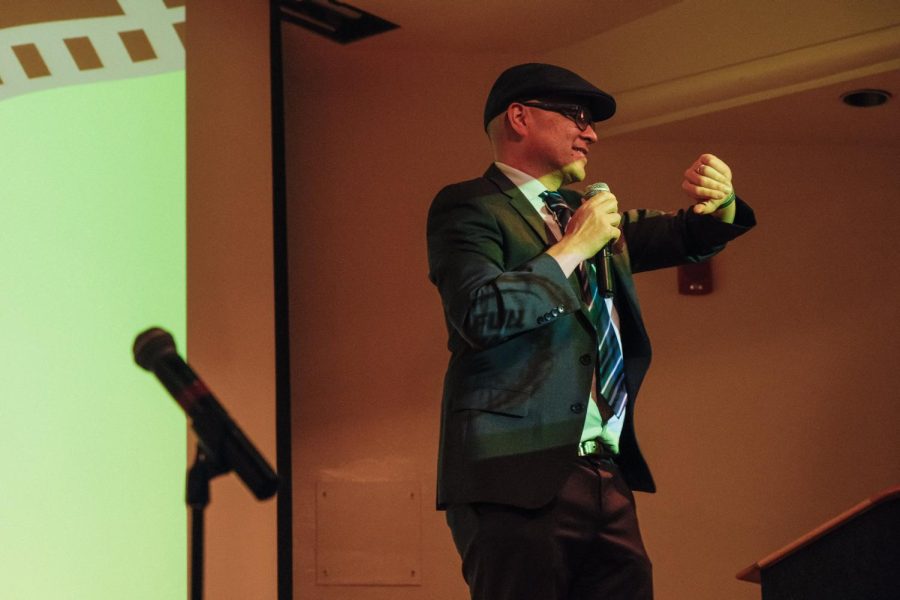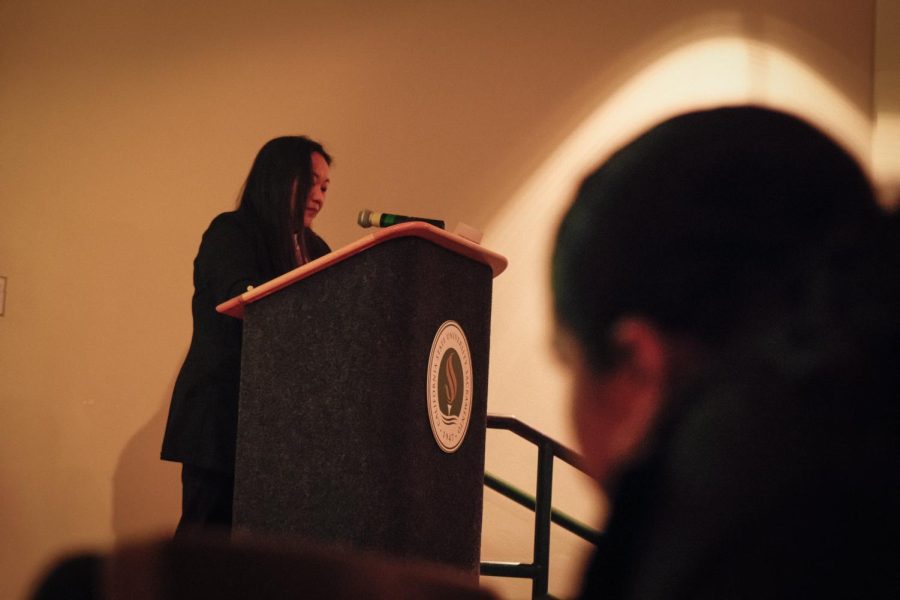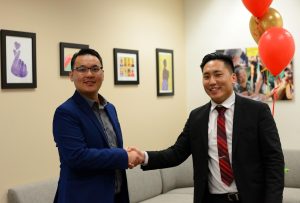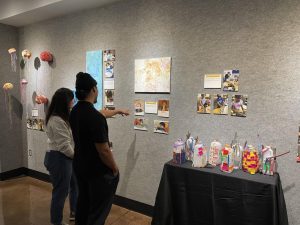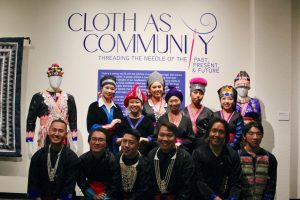Asian-American Studies program hosts student art showcase
Ethnic studies brings awareness to anti-Asian rhetoric
William Gow, Asian American Studies assistant professor, gives opening remarks before the screening of short films based around Asian America stories during COVID Tuesday, May 2, 2023. Gow’s ETHN 113 Asian American Communities class screened documentaries.
May 8, 2023
The lobby suite of the University Union swelled with conversation as Sacramento State students, staff and community members gathered in support of the Ethnic Studies Department and the Asian-American Studies program during the Stop the Hate Arts and Media Showcase Tuesday.
The showcase was catalyzed by the dramatic surge of racially motivated crimes against Asian-Americans during the pandemic and dedicated to bringing awareness to anti-asian discrimination and violence.
Local artists and students enrolled in ETHN 113: Asian American Communities, showcased original art and presented short documentaries primarily focusing on Asian-American experiences during the COVID-19 pandemic.
The class was recently redesigned by College of Social Science and Interdisciplinary Studies Assistant Professor William Gow after the pandemic to center around practicing oral history and challenging Asian stereotypes.
“This has been a big problem really pre-dating COVID, but especially during COVID,” Director of Asian Studies James Rae said. “The treatment and harassment of Asian-American and Asian people has been a real concern.”
In support of Sac State’s Asian-American Studies Program and the ETHN 113 oral history project, the department was awarded a $150,000 Stop the Hate grant from the California Department Social Services. Sac State is the only university in Northern California and the only CSU campus to receive the grant.
Many of the artists spoke to causes that were important to them and had themes they hoped to portray to the audience.
Much of the showcase grappled with ideas such as the fetishization of Asian women and their hypersexualized stereotypes, mental health stigmas in ethnic communities and the experiences of differently-abled identities.
“I hope the audience sees that disabilities are not something that takes away from you and that you can be happy and joyous in spite of it,” said third-year journalism and ethnic studies double major Summer Lomendehe, whose documentary centered around a multi-generational family with a deaf and mute grandmother during the pandemic.
Many of the artists and ETHN 113 students also volunteered to work the event to support their class and show gratitude to Gow, who hosted the night’s event.
“I know how hard [Gow] worked for this grant specifically and for us to really showcase the different stories of Asian Americans,” Lomendehe said. ”We rarely see that in mainstream media.”
Audience members experienced the history of people of Asian descent in America through the documentaries and gallery art, participating in discourse surrounding how these communities are portrayed in the media and the dangers associated with many of the stereotypes.
“This is something I really care about,” university communications writer Jennifer Morita said. “I know that Asian-Americans have had a very troubled history here in the U.S. and so it’s something I wanted to learn a little bit more about.”






























































































































